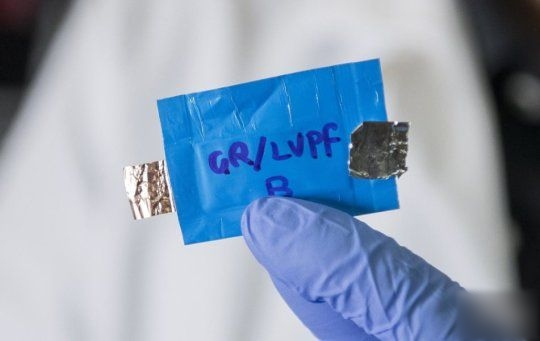Scientists develop a new type of water-based lithium battery explosion-proof fire
According to foreign media reports, a team of Chinese scientists at the University of Maryland recently developed a new type of lithium-ion battery based on a water-based electrolyte that not only meets the standards required for laptops and other home electronics products for the first time in voltage. It also avoids the danger of fire and explosion. In existing electronic products, non-aqueous electrolytes are used in lithium-ion batteries. When the electronic equipment is working, the battery voltage must meet the 4V standard, but under this voltage, water is easily electrolyzed, so the organic solvent used in the lithium battery is generally used as the electrolyte, but these electrolytes are flammable and easy to use. Explosive, there is a great security risk. It is understood that the research team had developed a water electrolyte battery in 2015, but since the voltage is only 3V at the highest, and the electrode performance will be affected by the aqueous solution. After redesigning the product, the research team collaborated with scientists such as the US Army Research Laboratory Xu Kang to develop this upgraded water-based lithium battery. The researchers passed a new kind of polymer coating, which has special drainage properties. After it is applied to the electrode, water molecules cannot get close to the electrode surface. After the first charge, the gel decomposes into a stable interface, isolating the electrode from the electrolyte and preventing water molecules from decomposing at operating voltage. This technology not only improves the energy storage and charge and discharge performance of the battery, but also completely avoids the risk of the organic solvent electrolyte prone to explosion. Although the operating voltage of the new battery has reached the basic commercial level, there are still many areas that need improvement compared with the current lithium-ion battery. For example, the cost of zinc battery materials is relatively high, and the charge and discharge can only reach 50 to 100 times. However, it is undeniable that it has important implications for battery technologies such as sodium-ion batteries, lithium-sulfur batteries, zinc-magnesium multi-ion batteries, and electroplating and electrochemical synthesis. Absorption Minibar,Hotel Mini Fridge,Living Room Fridge,Guest Room Mini Fridge Uni-Sec (Ningbo) Electronics Technology Co., Ltd. , https://www.hospitalityunisec.com